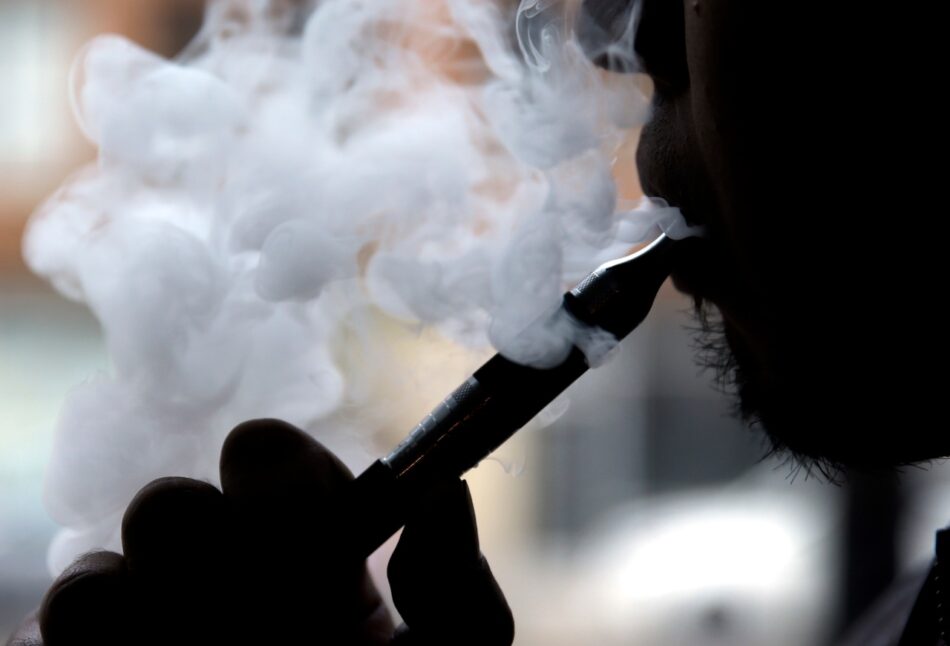A new Alabama law that took effect June 1 came in response to what some called an epidemic — the use of electronic cigarettes, or vapes, by children and teenagers.
It was already illegal to sell vapes to minors.
The new law, HB8 by Rep. Barbara Drummond, D-Mobile, aims to increase enforcement of that prohibition by raising more money through increased fees and fines.
The bill provides funds to the Alcoholic Beverage Control Board and the Alabama Law Enforcement Agency to carry out the new law.
A portion of the funds will be used to develop education and prevention programs.
“When I started meeting with educators throughout the state, they would tell me their number one problem was vaping,” said Drummond, who worked on the bill for three years.
“We had one superintendent who came and brought one of those huge garbage bags filled with nothing but vaping devices.
“And they said that the problem they were having is that some of these were taken from kids as young as third graders.”
The Legislature passed HB8 on May 6, and Gov. Kay Ivey signed it into law on May 14.
Who can sell vapes?
One provision in the new law was intended to restrict the sales of hundreds of varieties of vapes to 21-and-older specialty stores.
But that was nullified by a court agreement between the state and the Petroleum & Convenience Marketers of Alabama, which contended that the state could not exclude certain retailers, including convenience stores, from products that are allowed by the Food and Drug Administration.
The agreement means that all retailers with a tobacco permit can sell vapes on the state’s approved list, called the Electronic Nicotine Delivery System directory, or ENDS.
That does not change what has been the law for several years.
But the increased enforcement should help keep vapes that are not on the ENDS directory off store shelves, which has been a problem, supporters of the legislation said.
“When you go into convenience stores and other establishments that sell vaping products, you would see items that were being marketed to young people like flavors,” Drummond said. “Frutti tutti and all kinds of stuff. And that was against the law.
“But ABC did not have the staff, nor did they have trained staff to go into those establishments and be able to enforce what was currently on the books.”
There are more than 900 vape products on the ENDS directory.
Bart Fletcher, president of the Petroleum & Convenience Marketers of Alabama, said the sheer volume of vape products makes it a challenge to identify those that are not approved.
“It was a pretty daunting task and one that I don’t think the department (the ABC Board) really had the ability to adequately enforce,” Fletcher said.
“But after the passage of House Bill 8, they’re focusing much more of their enforcement efforts on vape products. So we’ll see.”
New fees
Alabama already required a permit to sell tobacco products, but there was not a cost.
HB8 created a new fee of $150 per store, to be renewed annually. It also added a one-time, $50 filing fee.
The legislation establishes a $1,000 annual license fee for stores classified as specialty retailers of electronic nicotine delivery systems.
Specialty retailers are stores with names that include the words “vapes” or some variation, or stores where vapes make up at least 50% of the inventory or occupy a certain amount of shelf or floor space.
Specialty retailers cannot admit any customers younger than age 21.
Hefty fines
Under HB8, the ABC Board will require tobacco permit-holders that violate regulations to pay fines about five times more than before.
Also, the new law says the board “shall” issue the fines, while the law previously said the board “may” issue the fines.
- For a first violation within a two-year period, the fine is increased from $200 to $1,000.
- For a second violation within two years, the fine is increased from $400 to $2,500.
- For a third violation within two years, the fine is increased from $750 to $5,000.
Where the money goes
HB8 created the Vaping Licensing and Enforcement Fund within the state treasury.
All the money from the fees and fines goes into the new fund.
- 40% will go to the ABC Board’s Licensing and Compliance Division for the cost of enforcing the law and for tobacco and nicotine prevention education.
- 20% will go to the Alabama Law Enforcement Agency for enforcement of the tobacco/vapes law.
- 20% will go to the State Board of Education to establish vape awareness, education and prevention programs.
- 20% will go to the state court system for drug education and prevention and for court-ordered addiction and substance abuse rehabilitation courses.
No vending machines
HB8 bans the sale of any tobacco product or vapes from vending machines.
Vending machine sales were previously allowed in locations that had 21-and-older age restrictions.
Education programs
The law says that by Sept. 1, 2025, the State Board of Education will adopt a model policy for vape awareness, education, and prevention.
The purpose is to prohibit all tobacco products, vapes, and alternative nicotine products in K-12 public schools.
By Nov. 1, 2025, each local school board is required to adopt a police based on the SBOE model.
Minors caught with vapes
It was already illegal for people under age 21 to buy or possess tobacco products or vapes.
The new law spells out consequences for those under age 19. Those will be handled in juvenile court.
For a first violation, the parents are notified and the minor is required to attend an in-person vaping awareness, education, and prevention class.
For a second violation, the parents are notified and the minor is required to a take a nonresidential addiction or substance abuse rehabilitation course approved by the court and the Department of Public Health.
The parent must attend the course, too.
The cost will be paid from the Vaping Licensing and Enforcement Fund.
Sen. David Session, a Republican from Mobile County, said the health risks from vaping is an epidemic for young people in Alabama. John Sharp
Sen. David Sessions, a Republican from Mobile County who handled HB8 in the Senate, said the goal is not to be punitive with the underage users.
“Young people make mistakes. And we don’t want them to be necessarily punished harshly for those mistakes. But we want them to learn from their mistakes,” Sessions said in the Senate in May.
Sessions said the bill would not fully prevent children from the risk of vapes, a problem he called an epidemic.
“But we will go a long way into making sure that we’re not going to make it easy on them to get these products,” Sessions said.
“We’re not dealing with whether this is chunky peanut butter or smooth peanut butter. We’re dealing with a product that is unhealthy. It is unhealthy for adults as well as young people.”
Drummond said her resolve to pass the bill grew after she got a call from a school official in Dallas County who reported that a student had died from using a vape laced with fentanyl.
She received another call about a third-grader who was found with a vaping device in a Mobile school.
“I am proud of what we have done in Alabama,” Drummond said. “We now are showing the industry that we care about the health of our children.”






